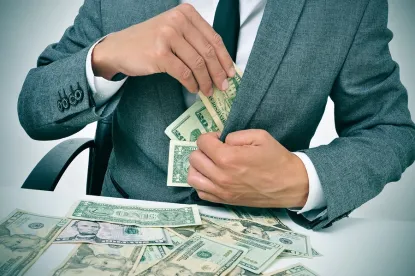Amid the COVID-19 pandemic, New York Attorney General Letitia James has stated her office will be aggressive in prosecuting price gouging. On March 10, AG James stated, “we will not tolerate schemes or frauds designed to turn large profits by exploiting people’s health concerns.” The NY Office of Attorney General (“OAG”) is tasked with enforcing New York General Business Law Section 396-r, which prohibits parties from selling or offering certain goods or services at an unconscionably excessive price during an abnormal disruption in the market.
New York triggered its price gouging statute – Section 396-r – on January 31, 2020, when the U.S. Secretary of Health and Human Services declared a national public health emergency. The statute applies to “consumer goods and services vital and necessary for the health, safety and welfare of consumers.” The law defines consumer goods and services to mean those “used, bought or rendered primarily for personal, family or household purposes.” New York’s statute covers a broad range of parties in the supply chain. Section 396-r applies to all parties in the chain of distribution, including any: manufacturer, supplier, wholesaler, distributor or retail seller of consumer goods or services or both. The law also applies to “repairs made by any party within the chain of distribution of consumer goods on an emergency basis as a result of such abnormal disruption of the market.” N.Y. Gen. Bus. Code § 396-r(2).
What constitutes unconscionably excessive pricing under Section 396-r is a question of law. Section 396-r(3) states that courts look at the following factors to determine whether a price is unconscionably excessive:
- The amount of the excess in price is unconscionably extreme;
- There was an exercise of unfair leverage or unconscionable means; or
- A combination of:
- The amount charged represents a gross disparity between the price of the goods or services which were the subject of the transaction and their value measured by the price at which such consumer goods or services were sold or offered for sale by the defendant in the usual course of business immediately prior to the onset of the abnormal disruption of the market; or
- The amount charged grossly exceeded the price at which the same or similar goods or services were readily obtainable by other consumers in the trade area
A party accused of price gouging under Section 396-r may rebut evidence of unconscionably excessive pricing with evidence that the increase was attributable to costs imposed on the defendant that were outside of its control. N.Y. Gen. Bus. Code § 396-r(3)(b)(ii).
The New York Attorney General is taking a vigilant approach to enforcement, possibly because there have been numerous complaints about alleged price gouging and the statute does not provide a private right of enforcement. On March 9, the OAG issued a cease and desist order after it confirmed that a Midtown Manhattan hardware store was charging customers $79.99 for 1200mL of hand sanitizer. Another cease and desist order was issued the same day to a grocery store in Queens after charging $14.99 for a 19oz bottle of disinfectant spray. Those found in violation of Section 396-r can face a fine of up to $25,000, as well as injunctive relief.
New York City Emergency Rule
New York City is also taking the matter into its own hands. On March 16, 2020, the NYC Department of Consumer and Worker Protection (“DCWP”) enacted an emergency rule, making price gouging illegal for any household or personal good or service that is needed to prevent or limit the spread or treatment of COVID-19. The emergency rule makes it illegal to increase the price of covered goods and services by 10 percent of more. The rule provides an exception for situations where the price increase is a result of an increase in the cost of supplying the good. Proof of such must be provided to DCWP.
Examples of covered personal or household goods include:
- Cleaning products
- Diagnostic products and services
- Disinfectants (wipes, liquids, sprays)
- Face masks
- Gloves
- Hand sanitizer
- Medicines
- Paper towels
- Rubbing alcohol
- Soap
- Tissues
DCWP is actively inspecting stores and says those found in violation face a fine of up to $500 per item or service. The city is currently seeking up to $37,500 in fines from an Upper East Side pharmacy for “knowingly increasing the price of face masks.” As of March 25, 2020, the city has issued more than 1,000 violations related to coronavirus price gouging. The rule is in effect for 60 days, with the option of extending once for an additional 60 days. See also our summary of enforcement in CA for relevant updates with respect to that state’s efforts combat price gouging.





 />i
/>i

